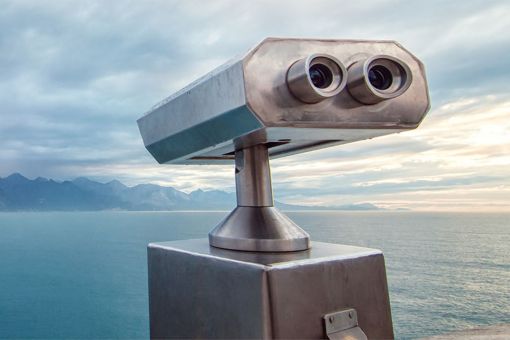Considered the most fatal accidental structural failure of modern times, the Rana Plaza incident in 2013 marked a turning point for corporate social responsibility. Rana Plaza’s collapse was the latest in a series of large-scale incidents that together catalyzed increased expectations from regulators and the public for organizations to take responsibility for implementing and promoting fair, ethical, and responsible supply chain management processes. In 2016, this trend led to the adoption of an historic resolution by the UN, the Guiding Principles on Business and Human Rights, which paved the way for the elaboration of a binding international agreement. At EU level, both the European Parliament and the European Council requested that the European Commission to take regulatory action. After a long period of research and negotiations, on 23 February, 2022, the Commission adopted a formal proposal for a Corporate Sustainability Due Diligence Directive (CS3D). This CS3D proposal, which is also an important component of the European Green Deal towards a more sustainable future, aims to foster sustainable and responsible corporate behavior throughout global value chains. On 1 December, 2022, the European Council adopted its negotiating position, or 'general approach', on the CS3D.
Directive for Corporate Sustainability Due Diligence explained
The overall objective of the CS3D proposal is to foster sustainable and responsible corporate behavior across global value chains, providing legal certainty and a level playing field for businesses. The CS3D applies to human rights, including labor rights, as well as international environmental standards throughout companies’ entire global value chains. This means that companies must adhere to certain obligations regarding actual and potential adverse impacts on human rights and the environment, with respect to their own operations, those of their subsidiaries, and those carried out by their business partners.
The Council’s negotiating position provides greater clarity on the conditions of civil liability, which ensures full compensation for damages resulting from a company's failure to comply with its due diligence obligations. Companies' liability will be clear and adverse impacts will need to be prioritized.
The extent of the obligations is proportional to the company’s size and resources, and nature of business, with larger companies and those operating in high-risk sectors and/or regions facing greater demands. More specifically, the directive will apply to the following companies:
- EU companies with more than 500 employees and more than EUR 150 million global net turnover;
- EU companies operating in high-impact sectors with more than 250 employees and a global net turnover of EUR 40 million; and
- Non-EU companies that are active in the EU and generate turnover in the EU exceeding the above-mentioned thresholds.
There will also be a phased approach where primary, companies with 1,000 plus employees and a turnover of EUR 300 million for non-EU companies or EUR 300 million net turnover generated in the EU, three years from the entry into force of the directive, are in scope.
Based on the current CS3D proposal, it is expected that the directive will impact around 13,000 EU companies and 4,000 non-EU companies.
In terms of specific requirements, the CS3D proposal contains six different components that companies will need to consider:
- Integrating due diligence into the policies of the company;
- Identifying actual or potential adverse human rights and environmental impacts;
- Preventing, mitigating, or ending actual and potential adverse human rights and environmental impacts;
- Establishing and maintaining complaints procedures;
- Monitoring the effectiveness of the company’s due diligence policies and measures; and
- Publicly communicating on due diligence.
Companies will not only be required to take concrete measures to adapt and improve their supply chain processes along these different components, but they will also need to describe the measures they have taken in the company’s annual report.
What’s next?
Legislation on ESG-related topics is constantly evolving, as demonstrated by the European Commission’s recent proposal to ban goods made with forced labor. In terms of European legislation, significant progress has been made with the submission of the CS3D proposal by the Commission on 23 February, 2022, and the adoption by the Council of its negotiating position on 1 December, 2022.
Nice to know - National legislation: zorgplicht wet, what to expect?:
Belgium has not yet implemented its own due diligence law, but a legislative proposal was submitted on 21 April, 2021. The proposal focuses on the implementation of a 'care plan' for all Belgian companies within the scope of the CS3D. While the precise requirements of the care plan are not yet known, the legislative proposal suggests that it will likely include requirements in relation to third-party risk management, risk assessments, whistleblowing channels, and complaint procedures, among other measures.
The Directive itself is currently still in the proposal phase, and the eventual adoption of the proposal by the European Parliament and Council is highly anticipated. Once the Directive is adopted, it will need to be transposed into national legislation by EU Member States within two years after entering into force. While the Directive allows member states to develop their own legislation, they must do so in compliance with EU guidelines. Some EU member states, such as France, Germany, the Netherlands, and the UK, have already implemented their own national due diligence laws. Belgium currently does not have any such regulations in place but is now in the process of drafting the Zorgplicht wet, a national piece of legislation which aims anticipate the coming of the CS3D Directive.
How KPMG can help
As experts in the fields of ESG, Supply Chain, Compliance and Law, KPMG can support your organization in its objective to build and maintain a comprehensive, integrated, and effective corporate sustainability due diligence program. We can guide and advise you in all steps of the process, including:
- Assessment: Applying proprietary tools and frameworks to compare your organization's current corporate sustainability due diligence efforts with regulatory requirements and global better practices to create clarity and identify potential gaps and improvement opportunities;
- Design and implementation: Providing expert guidance and support in implementing and integrating corporate sustainability due diligence requirements into your company’s existing policies, procedures, and processes; and
- Maintenance: Providing outsourcing solutions and assisting your organization with managing, maintaining, and monitoring corporate sustainability due diligence efforts on a day-to-day basis.
Together with you, we can ensure that your organization’s corporate sustainability due diligence program goes beyond the regulatory minimum and actively helps you to build and/or maintain trust from stakeholders across your entire business ecosystem.
The way forward – Third-Party Risk Management (TPRM)
In response to society’s increased expectations regarding corporate sustainability due diligence, KPMG has developed a proprietary framework, the KPMG Third-Party Risk Navigator, which can help bring clarity to and improve your company’s TPRM Program.
The Third-Party Risk Navigator is built along three lines of defense: promoting agility, identifying emerging risks, and helping to clarify the strengths and weaknesses of your organization. This Navigator contains KPMG’s global and industry-wide knowledge of TPRM and has been developed to support our clients by providing an efficiently run maturity assessment as well as the latest market insights.

Interested to learn more about how we can help your due diligence and third-party risk management approach? Contact one of our specialists.
Author: Julie Wauters




